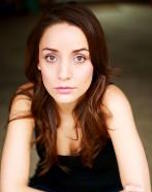Shakespeare's great tragedy explores the darkest corners of the human heart as the ambitious Macbeth schemes and murders in his raw, ambitious quest for the throne. The ominous portents of three "weird sisters" and a warning from Banquo's ghost guide his bloody hand ... or do they? Set amid the harsh landscapes — both political and geographic — of 1980s Afghanistan, this dark and brooding vision comes to life.
Parents, please be advised that this production of "Macbeth" contains material that may be disturbing to some children under 13, including simulated violence and loud gunshots from blanks fired onstage.




